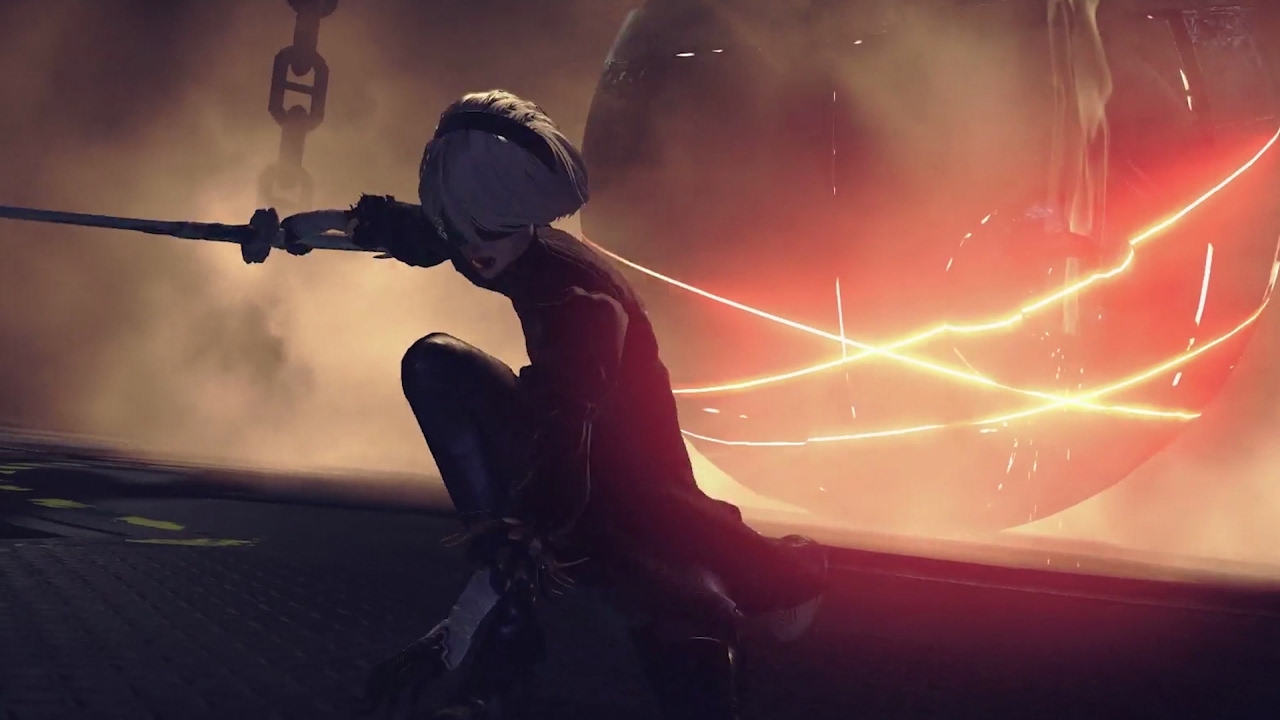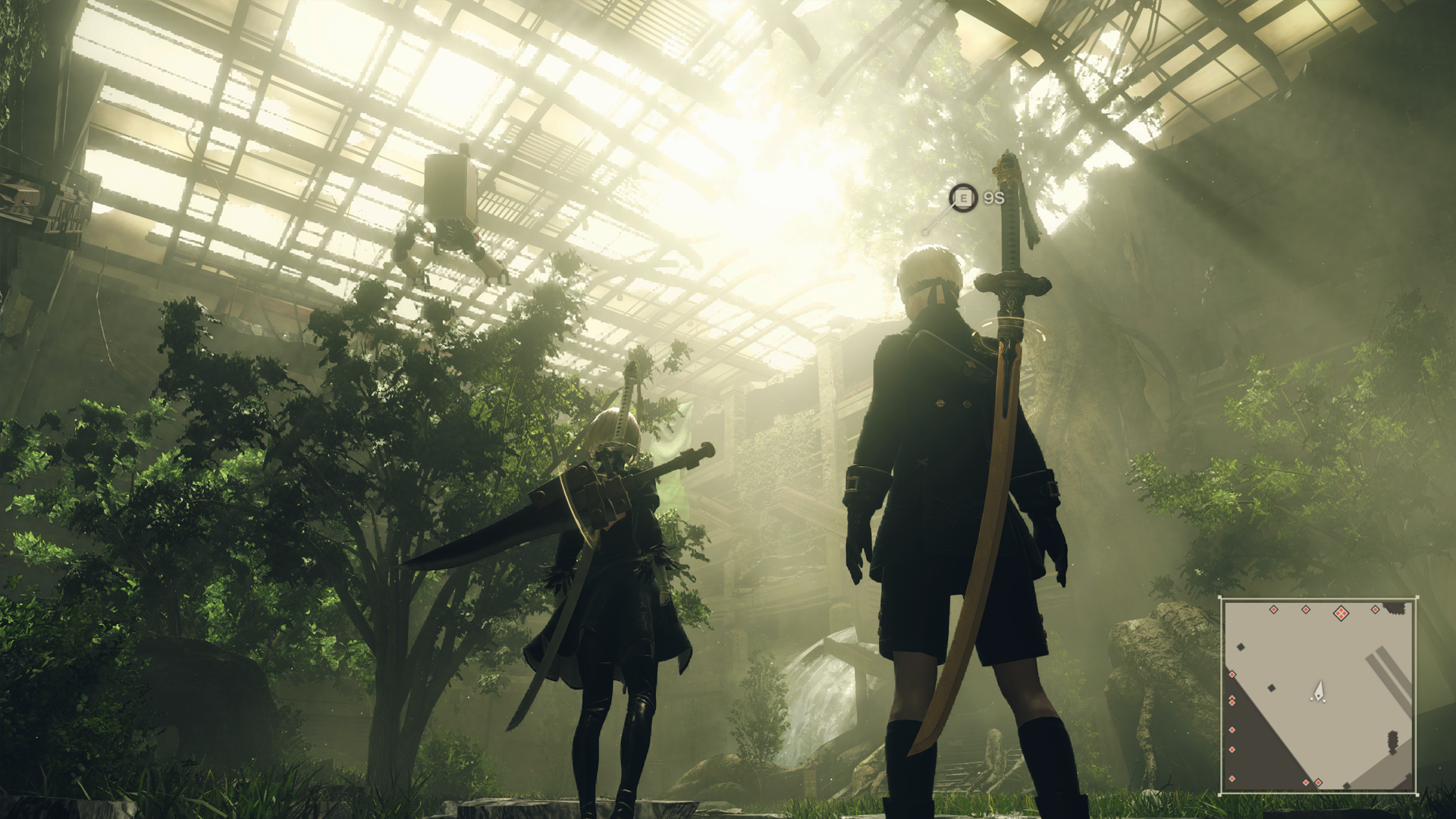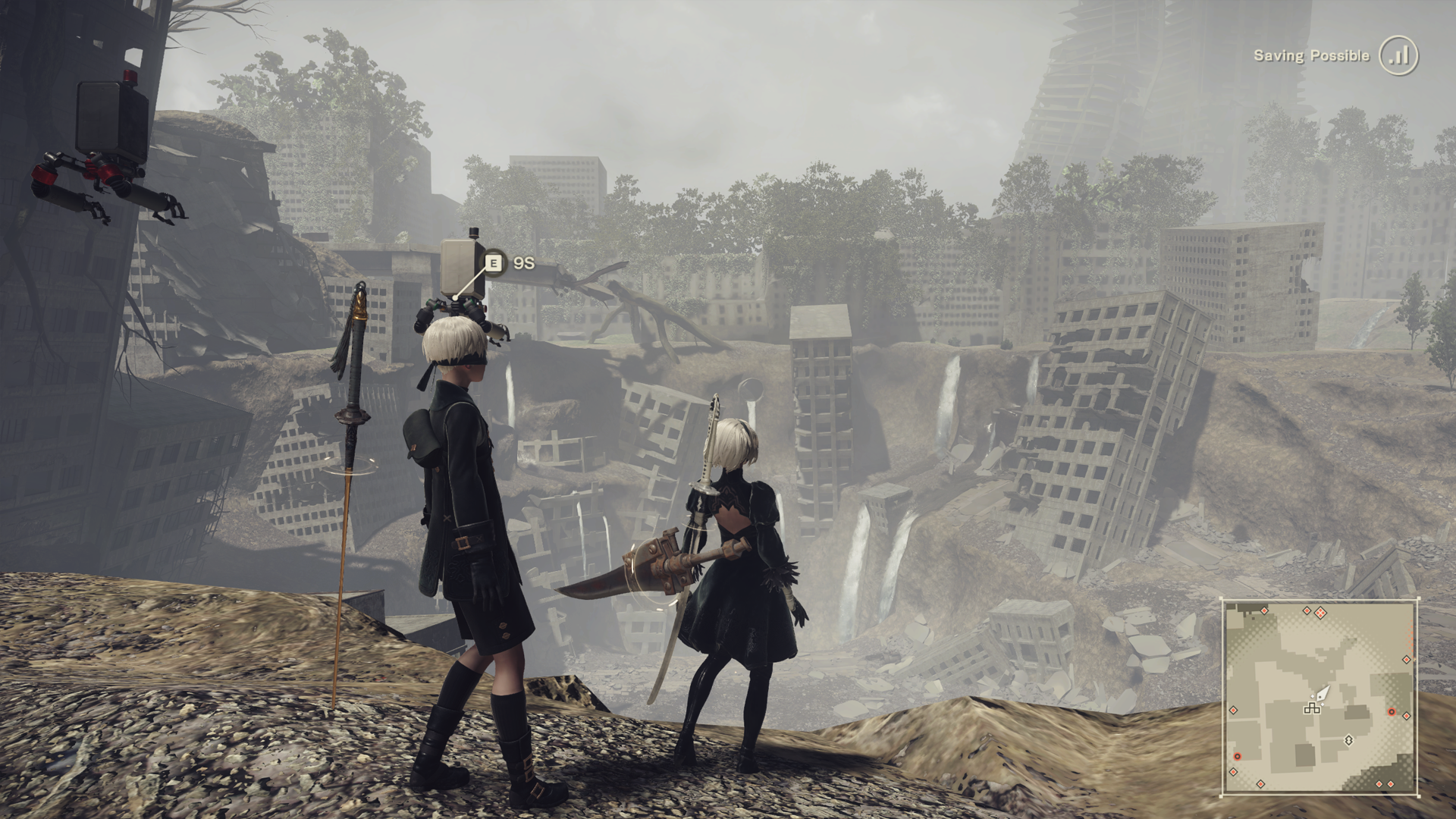Nier: Automata is one of the saddest games ever made
Hacking, slashing, and existential angst.

Spoiler alert: this article contains spoilers for the first playthrough of Nier: Automata.
Nier: Automata is a game about white-haired Ken dolls plotting their ascension while a colony of surviving humans hides on the moon. It is also a game about androids smashing hundreds of squat machines with samurai swords. At the same time, it is a game that explores existentialism, nihilism, and other big isms in a despairing vision of a world that has lost humanity and cannot move on. It's brilliant.
In Nier you play an android, dispatched by android high command to destroy the little rust-coloured machines that have taken over the planet. It's quickly obvious, when they start screaming in fear at your arrival, that the machines have gained a degree of sentience. They have formed small societies that crudely mimic human behaviour. In the heart of an abandoned housing district the machines are trying to have sex while some tend to heaps of spare parts in prams. In an abandoned theme park another machine straps dead androids to itself in an attempt to recapture an operatic vision of beauty.
It's a cracked mirror scenario that cleverly reverses an old sci-fi premise. Precursor races are typically presented as unknowable god-like masters of technology whose works serve as a stepping stone for human advancement. In Nier humans are the precursor race, and you're forced to watch Earth's inheritors in their futile struggle for validity, chasing an imperfect ideal. Initially, this is a pantomime (literally, at one point in the theme park district), but as you meet more developed machines Nier starts to raise familiar AI dilemmas—at what point does emulation become interchangeable with the real thing?

Thematically, Ghost in the Shell is an obvious touchstone, and it's worth bringing in to demonstrate how games as a medium handle similar themes in more engaging ways. Ghost in the Shell is ostensibly about cool cyborgs hunting cool cool cyborgs, and the premise is used as a vector for exploring the parameters of personhood. The film does the intellectual heavy lifting in prolonged discussions on that topic, but its truly transcendent moments occur during two montages in which the android Major stares glassy-eyed at the kaleidoscopic might of Tokyo, and the city's impassive reflective surfaces stare back.
Nier's is powerful because it works like a huge experiential montage. The city, desert and factory zones segue uncomfortably into one another as you veer from one melodramatic display of machine culture to the next. Nier wants to expose you to many facets of its vision quickly and let the art and music do its work. It shows you a huge production facility, an arid desert, a ruined castle, abandoned apartment blocks, all lit in bleached sunlight. The robots and animals provide some motion, but most of Nier's backdrops are profoundly lonely. It's surely no accident that Nier's gorgeous soundtrack features so much human vocal. It's a powerful trick to project song into dead spaces, and Nier makes good use of the effect to shape its melancholic tone.

Games are so good at this. As you explore you passively absorb cues—music, scraps of dialogue, short stories—that collectively have a suggestive effect. Nier's cues all point to sorrow. Though much of what the NPCs have to say is banal, they're offering you short stories of struggle and, frequently, failure. The sunlight fades as the game moves on. Huge machines burst out of the earth, like freak weather events that pointlessly kill other machines. In a particularly on-the-nose moment you meet a robot called Jean Paul who wonders what any of it really means. On a surface level you're killing hundreds of machines with cool swords and defeating waves of enemies in bullet-hell bits, but all of it underscored by a deep sense of sadness.
Keep up to date with the most important stories and the best deals, as picked by the PC Gamer team.
Nier is more of a mood piece than a world. It's not concerned 'world building', which implies an attempt to create a plausible working society, instead it wants to use its world to put the player into a particular headspace where its themes resonate more effectively. Talking to PC Gamer's Andy Kelly about Nier earlier, he mentioned looking out over the city and seeing one skyscraper collapsed against the other, as though it was tired of the world. Were the skyscrapers intentionally designed to give that impression? Perhaps not, but Nier's mood altering effects encourage you to interpret and add meaning, further deepening the game's beautifully designed sense of despair
Part of the UK team, Tom was with PC Gamer at the very beginning of the website's launch—first as a news writer, and then as online editor until his departure in 2020. His specialties are strategy games, action RPGs, hack ‘n slash games, digital card games… basically anything that he can fit on a hard drive. His final boss form is Deckard Cain.


